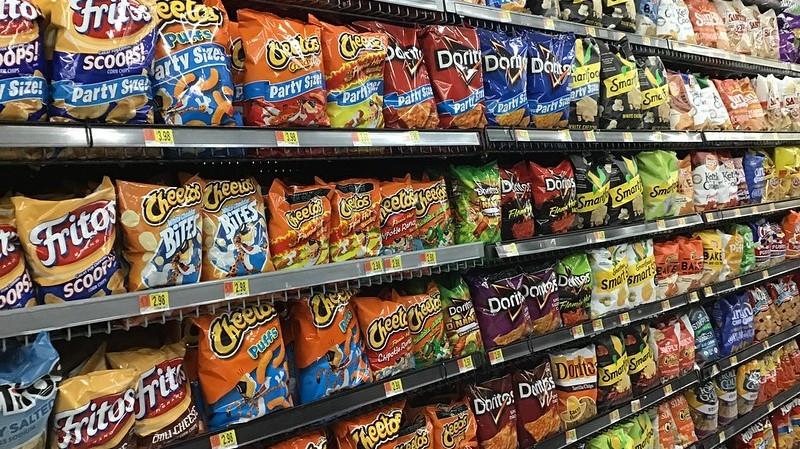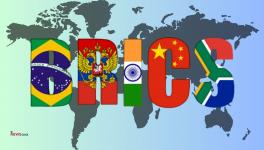Urgency of Taxing Ultra-Processed Foods in Brazil

Photo: Mike Mozart CC-by-DEED 2.0
In December last year, a tax reform proposed by the Brazilian government was approved. The reform includes an important provision: the introduction of a selective tax on products that are bad for health and the environment, discouraging their consumption. The details of the implementation of this provision have yet to be defined — it remains to be specified which products will be taxed, and the list is to be defined in a complementary law regulating the new tax.
Ultra-processed foods (UPF) are one of the main product categories targeted by the future tax. The industry that produces them is already acting behind the scenes, fighting against the inclusion of UPF in the legislation. Ultimately, the decision on whether or not to tax UPF will be in the hands of the Ministry of Finance, which is responsible for formulating the bill, and the National Congress, which will decide on its approval.
Researchers, activists, and leading names in the areas of health and food safety are working together to ensure that this chance to defend the health of the people in Brazil is not wasted. Last week, an initiative composed of such activists launched the Manifesto for a healthy tax reform, arguing that “ultra-processed products should be the target of selective taxation, alongside cigarettes and alcoholic beverages.” They argue that “various studies show that taxation is the most effective public policy for discouraging the consumption of products that are harmful to health.” One of the signatories, Gonzalo Vecina, health expert and founder of Anvisa, the Brazilian Health Regulatory Agency, told Outra Saúde that “the way forward is to tax in a way to generate revenue that will be used to support public policies.”
Two former health ministers are also taking part in the action. One of them, José Gomes Temporão, told Outra Saúde that “this issue is absolutely central to the future of new generations, since it refers to the prevention of countless chronic diseases” caused by UPF. In the same vein, Arthur Chioro, responsible for the health portfolio at the time when the Dietary Guidelines for the Brazilian Population were introduced, said that “Without this measure, we won’t be able to tackle the burden of chronic diseases on the Unified Health System (SUS).”
What dietary practices do we want to encourage?
It’s well known that producers of unhealthy products use various maneuvers to encourage mass sales. One of their tactics is to buy positive scientific coverage: with a few million dollars and a few complicit researchers, it’s possible to misleadingly spread the word, for example, that alcohol is good for the heart and ultra-processed foods are a solution to the problem of hunger.
But the main tactic employed is to seek tax breaks from the state. Today, industrialized food benefits more from the Brazilian tax structure than other food, paying less tax. The initiative for taxing UPF is set to tackle this fact.
If one considers the effects of consumption of UPFs on the population’s well-being, the information that such products receive more tax protection than other food appears very contradictory. “57,000 deaths a year are attributed to the consumption of ultra-processed foods, and yet these products still receive tax incentives,” warns the Doce Veneno (Sweet Poison) campaign. The campaign is promoted by the organization ACT Promoção da Saúde in support of the taxation of foods such as “sausages, snacks, soft drinks, stuffed cookies.”
As former minister Arthur Chioro put it, the current structure of taxes on food “is a delight for those who exploit public health by means of an industry that markets products that are harmful to health.”
In order to tackle the issue and influence the complementary law, the initiative put forward a series of proposals: making sure ultra-processed products are covered by the selective tax; banning subsidies and tax benefits for industries that produce harmful products; and creating mechanisms to promote consumption of healthy foods, including a lower tax rate to improve access.
José Gomes Temporão summarizes that the change to Brazilians’ plates must start from the idea that “good quality food has to be cheap and food that is bad for your health has to be very expensive.”
Scientific and health arguments favor taxation
The rationale behind the introduction of selective taxation is not limited to political considerations, wanting to confront an industry that causes a lot of damage and gives little back to society. Several technical arguments support this line of reasoning, advocates explain.
One of such arguments is the aforementioned figure of 57,000 deaths a year due to the consumption of ultra-processed foods. The figure comes from a study by the Center for Epidemiological Research in Nutrition and Health (Nupens), a study group at the School of Public Health of the University of São Paulo — the creators of the NOVA food classification. This system classifies foods according to the level of industrial processing, and nowadays represents a worldwide reference.
The number of deaths is significant and illustrates clearly the enormous impact of UPF on thousands of lives. Most of these deaths are linked to chronic non-communicable diseases, such as diabetes, cancer, and heart problems. Industrialized food can make the body more prone to developing such diseases, according to Nupens.
In an article written with Temporão and economist Monica de Bolle, Nupens coordinator Carlos Monteiro points out that several countries that have taken the initiative to tax ultra-processed foods or sugary drinks, such as Mexico and France, have succeeded in reducing their consumption and increasing funding for public health policies.
The Dietary Guidelines for the Brazilian Population, which were drawn up by the Ministry of Health together with Nupens and published in 2014, already recommend that diets should be based mainly on fresh and minimally processed foods — and that the state should ensure that this is accessible to the population.
By introducing the Guidelines, says former minister Chioro, “Brazil has offered the world a breakthrough, a new paradigm in terms of healthy eating that has been translated into several languages and has become a reference for the WHO and the FAO.” The reorganization of food taxation, making good food cheaper and unhealthy food more expensive, would be fully in line with such guidelines.
More recently, in a technical note from June last year, the current leadership of the Ministry of Health subscribed to the list of supporters of the adoption of “specific taxes on products that are harmful to health,” citing solid scientific grounds.
That document brings together the evidence that “smoking, alcohol consumption, and inadequate diet are the main risk factors for the development” of chronic non-communicable diseases, which already affect more than 50% of the Brazilian population.
To reduce the consumption of UPF the most effective way is to tax them, as international experiences show. Unlike what the industry claims, this tax would not be regressive, affecting mainly the poorest. “Its net impact is progressive,” says the technical note, since the most vulnerable would stop consuming UPF and “the revenue collected through the taxes could be directed towards meeting the needs of the population at a lower socioeconomic level.”
The Ministry also said the measure would contribute to “correcting the negative externalities generated” by products harmful for health. The tax would serve as a counterbalance to the enormous public spending caused by unhealthy products consumption. According to the National Cancer Institute (INCA), smoking causes an annual loss of R$50.2 billion (over $10 billion USD) to the SUS, for example. Another INCA study quotes a cost of R$1.7 billion (over $340 million USD) to the SUS which occurred in 2018, arising from the treatment of cancers linked to alcohol consumption. There are still no consolidated estimates of the financial impact of ultra-processed foods, but around 50% of the population has at least one NCD diagnosed — and they kill more than 700,000 people a year, according to SUS data.
For Gonzalo Vecina, the introduction of the new tax is essential, but it must go hand in hand with public health education campaigns. “Ultra-processed foods should be taxed and labeled so that citizens are fully aware that consuming them is dangerous,” he argued.
Mixed signals from the Ministry of Finance
The next step towards the introduction of the selective tax is the presentation of the bill that regulates it, a task attributed to the Ministry of Finance.
Yet, three months have passed since the approval of the tax reform, and the bill is still to appear. In the absence of a bill from the government, the Parliamentary Front for Entrepreneurship, with strong links to the industry, presented their own proposal on Monday, March 18. The proposal omits several products from the list and greatly reduces the scope of the tax.
Even worse, there are reports that the treasury fears that the tax could cause problems for the coffers. Such reports imply there might be a mismatch between the real motivation behind the tax — the defense of people’s health — and the abstract understanding of tax collection.
The Manifesto notes that the country is facing an “opportunity to make significant progress in guaranteeing the right to adequate and healthy food by implementing a selective tax on ultra-processed products.” In the coming weeks, Fernando Haddad’s Ministry of Finance and the National Congress will have the opportunity to demonstrate whether they have properly understood the urgency of this historic moment.
The report was written by Guilherme Arruda and published in Portuguese on Outra Saúde.
Courtesy: Peoples Dispatch
Get the latest reports & analysis with people's perspective on Protests, movements & deep analytical videos, discussions of the current affairs in your Telegram app. Subscribe to NewsClick's Telegram channel & get Real-Time updates on stories, as they get published on our website.
























